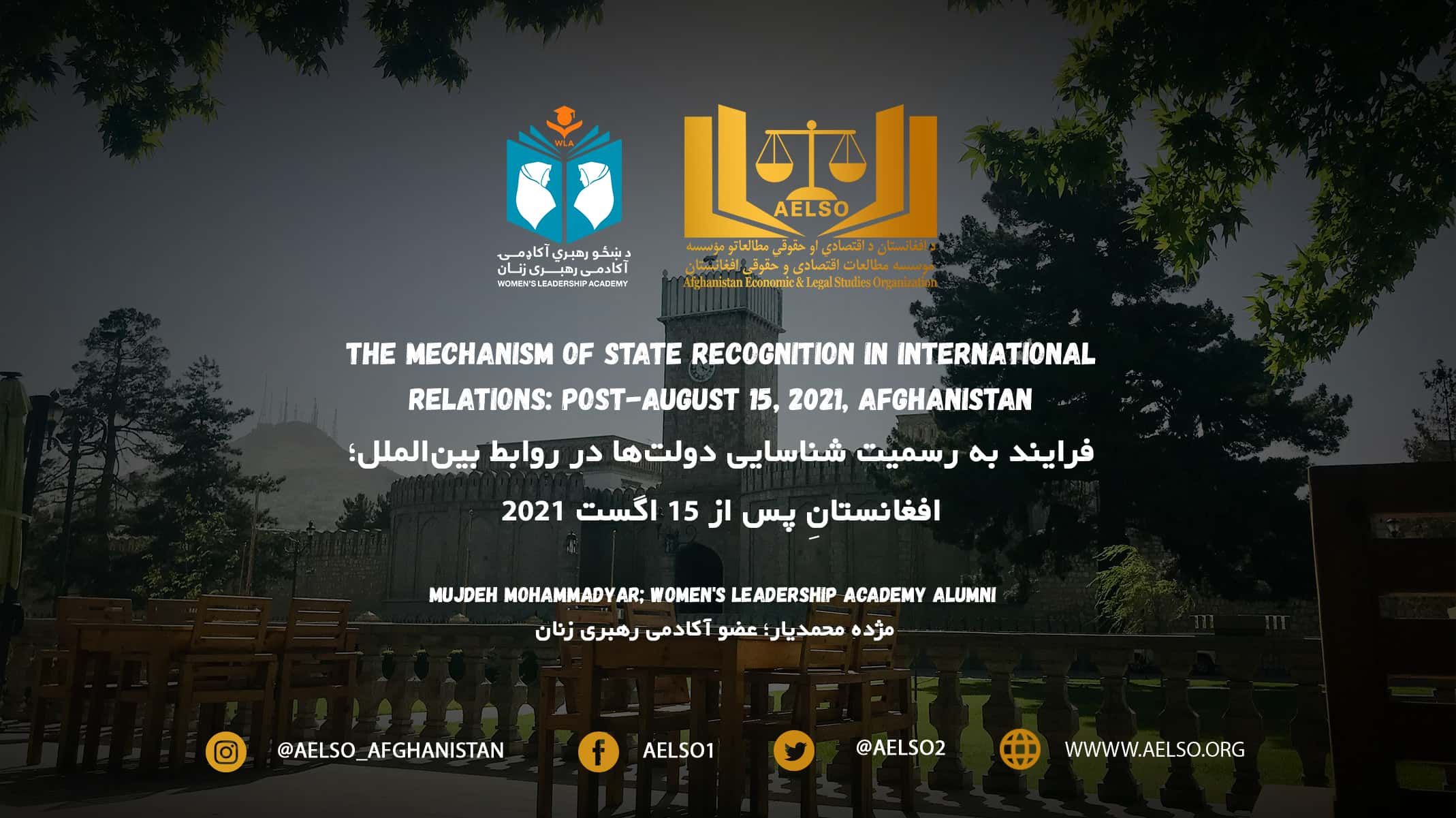
The Mechanism of State Recognition in International Relations: Post-August 15, 2021, Afghanistan
Every state and government must seek recognition upon its establishment to fully exercise sovereignty and be accepted as an active member of the international community. In international law, recognition is primarily a political process, with various methods proposed for achieving it. However, recognition is generally considered a discretionary act and not a mandatory act, which means that recognizing a state or government is based on the judgment, choice, or decision of other states or the international community. It is not an automatic or obligatory process. Each country or international body has the freedom to decide whether or not to recognize a new government or state based on its policies, interests, or criteria. Recognition is not legally required and can be granted or withheld at the discretion of the recognizing parties.
On August 15, 2021, Afghanistan came under the control of the Taliban. The group regained power, formally announced its government, and sought recognition from the international community. This study aims to evaluate the implications of the international community’s recognition or non-recognition of the Taliban’s interim government. The primary question is: what are the conditions under which the global community would be willing to formally recognize this interim government?
The United Nations has addressed this issue through two resolutions. The first resolution was issued before the fall of Afghanistan, and it outright rejected the recognition of the “Islamic Emirate.” However, the second resolution, while not explicitly denying recognition, set specific conditions for it. According to these conditions, the “Islamic Emirate of Afghanistan” will not gain recognition from the international community, particularly Western governments, until and unless it shows full cooperation with other states in curbing terrorist groups like ISIS and the atrocities caused by them and adheres to international norms, including respect for human rights, women’s rights, and the establishment of an inclusive government.
Keywords: International recognition, state, United Nations, Taliban, interim government